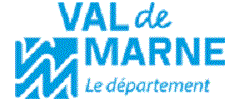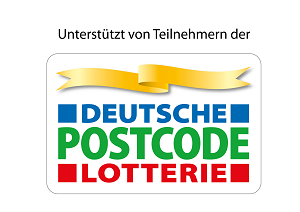Initiative of the German Federal Ministry for Economic Cooperation and Development (BMZ): “Green people’s energy for Africa” – Establishing citizen’s energy partnerships – WECF presents Georgian energy cooperatives
Creating a decentralised and citizen-oriented energy supply for African rural areas
27.06.2017 |
Berlin, 27 June 2017 - Creating a decentralised and citizen-oriented energy supply for African rural areas – this is the target of the initiative Federal Minister for Economic Cooperation and Development Dr. Gerd Müller presented at the energy congress on 27 June 2017 in Berlin, organised by the German Association for Cooperatives (Deutscher Genossenschafts- und Raiffeisenverband DGRV).
The initiative “Green people’s energy for Africa” makes ideas for a reform of the energy supply already presented earlier this year within the cornerstones for a Marshallplan with Africa more concrete. Federal Minister Müller: „Without energy, no development, without development no jobs. Together with cooperatives, municipalities and the private sector we will bring solutions for a green energy supply to the rural African regions. More than one half of the population on the African continent does not have any access to electricity. Population growth and rising use of technology in the business sector are increasing Africa’s demand for energy.
The DGRV congress “New Energy for Africa” was the starting point for a dialogue between cooperatives, community energy projects and decision makers in municipal, regional and national governments from Germany and Africa. Uganda’s Minister for Energy, Irene Muloni, attended the conference and emphasized in her speech the importance of decentralised energy projects in Uganda in cooperation with civil society.

WECF's Katharina Habersbrunner and Claudia Wendland meeting Irene Muloni, Uganda's Minister for Energy
Representatives of municipalities, cooperatives and the private sector described their experiences from energy projects with citizen’s participation. As a board member of the citizen’s energy cooperative BENG eG and as a member of the international NGO WECF, Katharina Habersbrunner presented the successful formation of “Gender-sensitive Energy Cooperatives” in Georgia. So far, in four Georgian regions energy cooperatives have been established. As a business model they produce, sell and install solar thermal collectors and energy efficient stoves. All citizens can become members of those cooperatives, they will have a vote in the general assembly and can co-design the cooperative’s strategy. Jobs are created along the whole value chain – beginning with purchasing material until installation – and both women and men can participate in the local economic cycle. The bottom-up approach with shares available for a small price enables a broad public to participate. To organise the production of technologies most efficiently, an umbrella cooperative that will be bundling purchase of materials and production is being established. The umbrella cooperative with local and international investors will finance and run a first production site for solar collectors. Further, the umbrella cooperative guarantees a standard in quality of the products through a certification mechanism and offers marketing and training (e.g. leadership-training for women) for the local cooperatives. On a political level, it supports a policy framework for renewable energies. This successful example points out the ecological, social and economic advantages of the democratic cooperative model: Creating access to financing mechanisms and to energy for all groups in society, reducing energy poverty, achieving lower cost and time effort for energy supply, a higher standard of living, sustainable growth, climate protection, cooperative and democratic structures that enable a social and cultural transition. Hence, energy cooperatives reveal the potential for a national contribution to reach the goals of international agreements (Paris Agreement, Agenda 2030). Of course, it is not possible to simply transfer the Georgian example to African countries, however its founding process and possible business models that are shown can be an impressive example.
For the implementation of this initiative of the BMZ, cooperatives, municipalities and the private sector play an important role. In the frame of this initiative, among other things 100 citizen’s energy partnerships are supposed to be established, where German citizens and municipalities can share their knowledge and experience with African partners. Decentralised energy solutions will create energy access in the first place, but beyond this, medicines as well as agricultural products can be stored and processed, craftsmen and women can improve their creation of value.
The BMZ position paper “Green people’s energy for Africa” can be found here in German language
An article on the Georgian cooperative model can be found here
Related News
Rural Georgians look to the sun to ease energy poverty
Video (6 min): by Deutsche Welle & Maria Lesser on our project in Georgia
04.06.2018
Implementing Agenda 2030 in Georgia: Where Are We Now?
WECF organised with Georgian government and the UN a workshop on the Sustainable Development Goals in Tbilisi, 19-21 February 2018
22.02.2018 | Tbilisi, Georgia
Round table discussion Violence Against Women and Economic Development
The round table treated the topic of Violence against women and Economic Development
13.12.2017
Sustainable Development Goal # 5 Gender Assessment in Georgia
This research was conducted by the organization We Research within the auspices of the project ‘’Women 2030’’ funded by the European Union and implemented by WECF International
27.09.2017
Feasibility study of gender-sensitive energy cooperatives in Georgia, Ukraine, Armenia and Moldova
New report by WECF offers report offers an overview of the feasibility of gender-sensitive energy cooperatives in Georgia, Ukraine, Armenia and Moldova.
12.05.2017






































